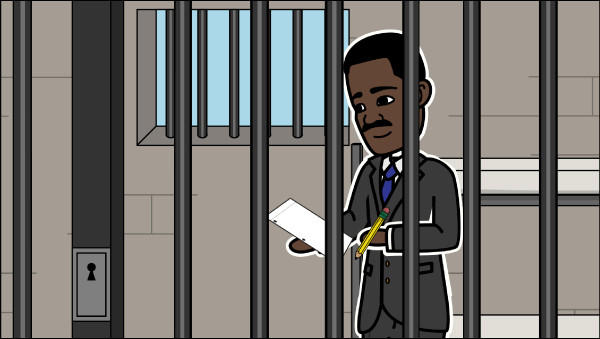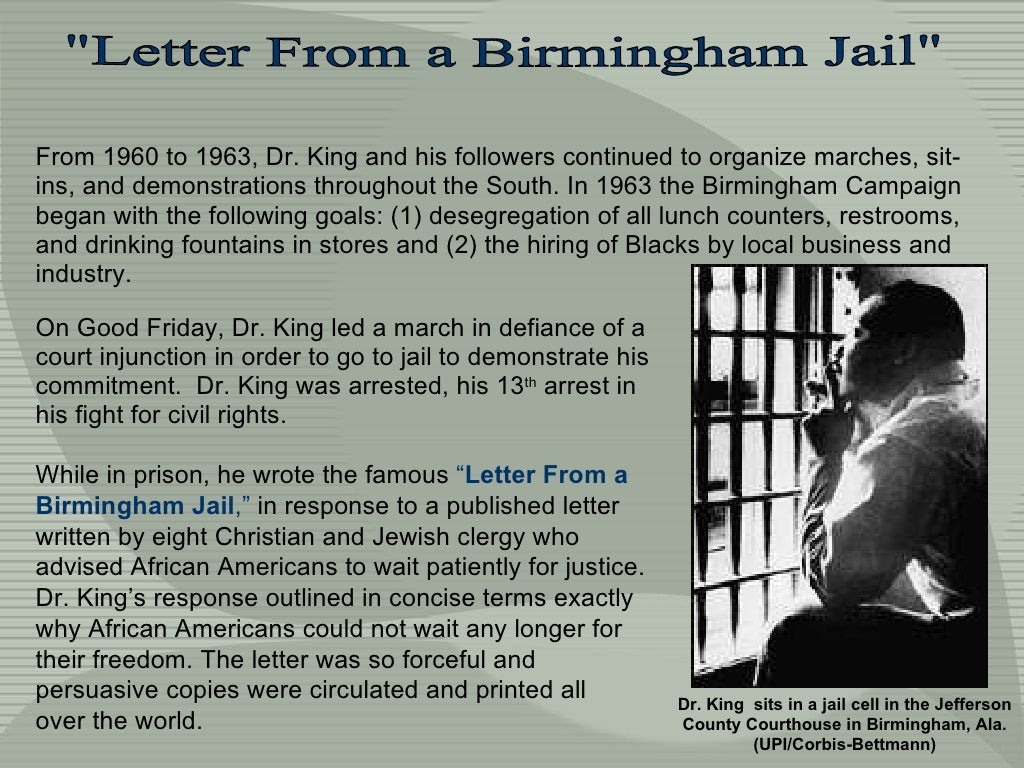

We are caught in an inescapable network of mutuality, tied in a single garment of destiny. Injustice anywhere is a threat to justice everywhere. I cannot sit idly by in Atlanta and not be concerned about what happens in Birmingham. I am in Birmingham because injustice is here. Since I feel that you are men of genuine good will and that your criticisms are sincerely set forth, I want to try to answer your statement in what I hope will be patient and reasonable terms. While confined here in the Birmingham city jail, I came across your recent statement calling my present activities “unwise and untimely.”.

Martin Luther King, Jr., Letter from Birmingham Jail, 1963 The civil rights leader penned a response while in a jail cell and then rewrote it for publication when he was freed. After his arrest, a group of white religious leaders wrote him a letter criticizing the means and timing of his fight for greater equality. King traveled there in 1963 to fight against racial discrimination and was arrested. In the early 1960s, Birmingham, Alabama, was one of the most segregated cities in the United States.

He called for nonviolent means, including sit-ins, boycotts, and marches, to end segregation in the South. Martin Luther King, Jr., was the most famous civil rights activist of the 1960s.


 0 kommentar(er)
0 kommentar(er)
